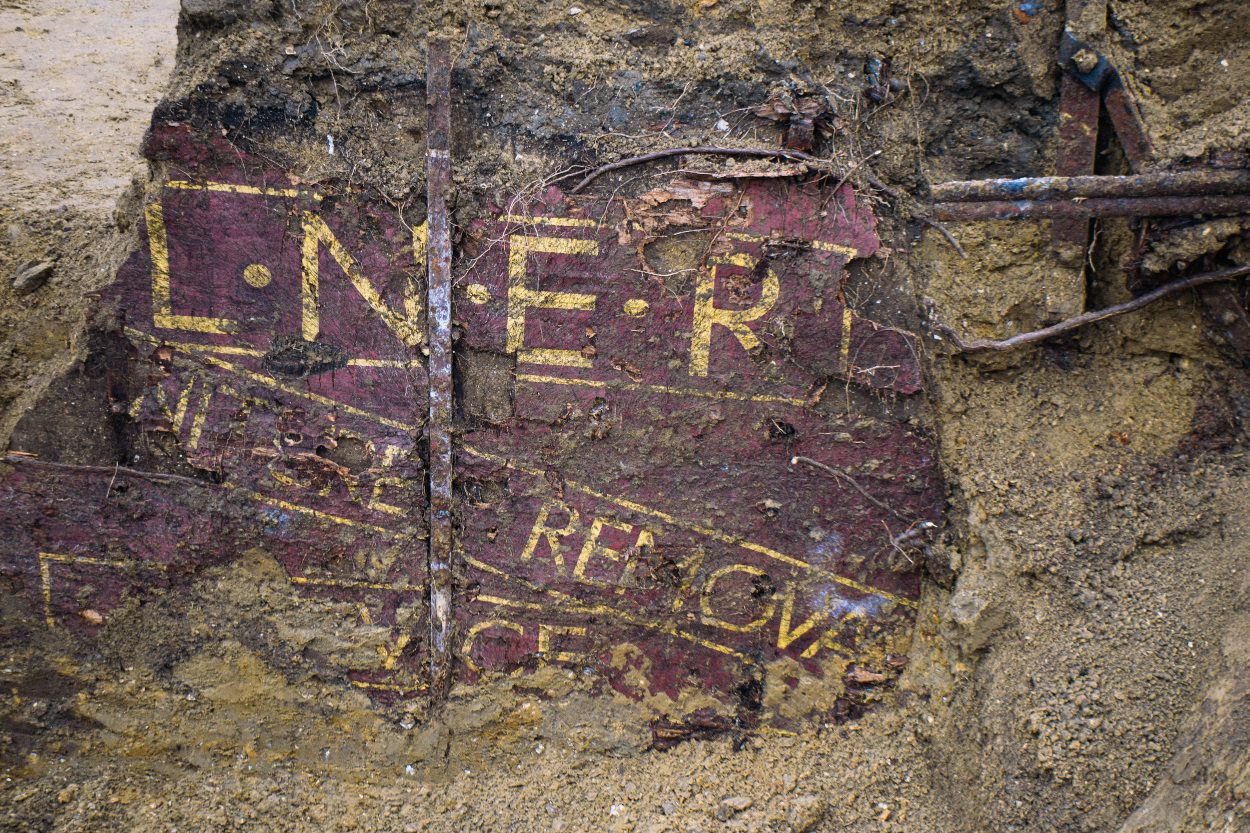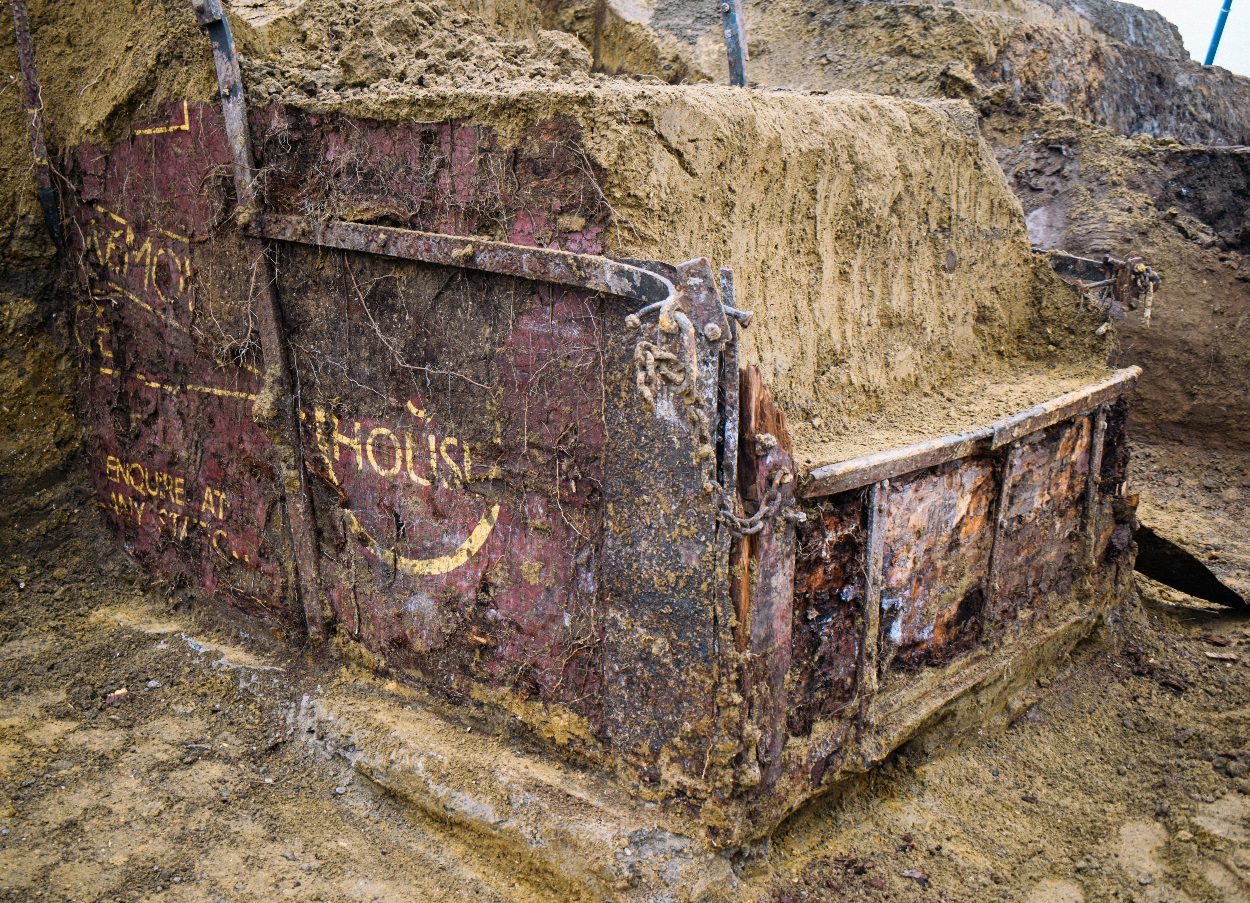Archaeologists from the city of Antwerp, Belgium, have uncovered a 1930’s British railway carriage during excavations for the Oosterweel Link.
The carriage was found buried along the future route of the Oosterweel Link, part of the greater R1 Antwerp Ring Road being constructed.
According to a press statement by the Oosterweel verbinding, the carriage is stock from LNER – London North Eastern Railway, one of the Big Four railway companies which operated between 1923 and 1948.
The LNER covered the areas north and east of London, and also included the East Coast Mainline from London to Edinburgh, and the routes from Edinburgh to Aberdeen and Inverness.
The company was nationalised in 1948 along with the other Big Four to form British Railways. It continued to exist as a legal entity until it was formally wound up in 1949.
The carriage is painted in red oxide, a colour mainly used around 1930 before it was phased out for the characteristic Oxford blue livery. On the sides are inscriptions reading “”…NITURE REMOVAL TO HOUSE”, “Enquire at any station”, “BK 1820”, and “LNER”.

BK 1820 indicates that the carriage is a Container Conflat BK 1820 which was a special wooden decked conflat wagon used for furniture removal, although some were built with insulation for refrigerated use.
Many of the BK 1820 stock were previously cattle trucks, but were converted into container conflats following a downturn in livestock traffic.
Speaking to HeritageDaily, a representative from Oosterweel verbinding, said: “It remains a mystery how the train carriage ended up in Antwerp and why it was buried. It may have been used as a storage space when the North Castle [site of a 19th century fortress] became a recreational spot.”
Header Image Credit : Oosterweel verbinding
Sources : Oosterweel verbinding





